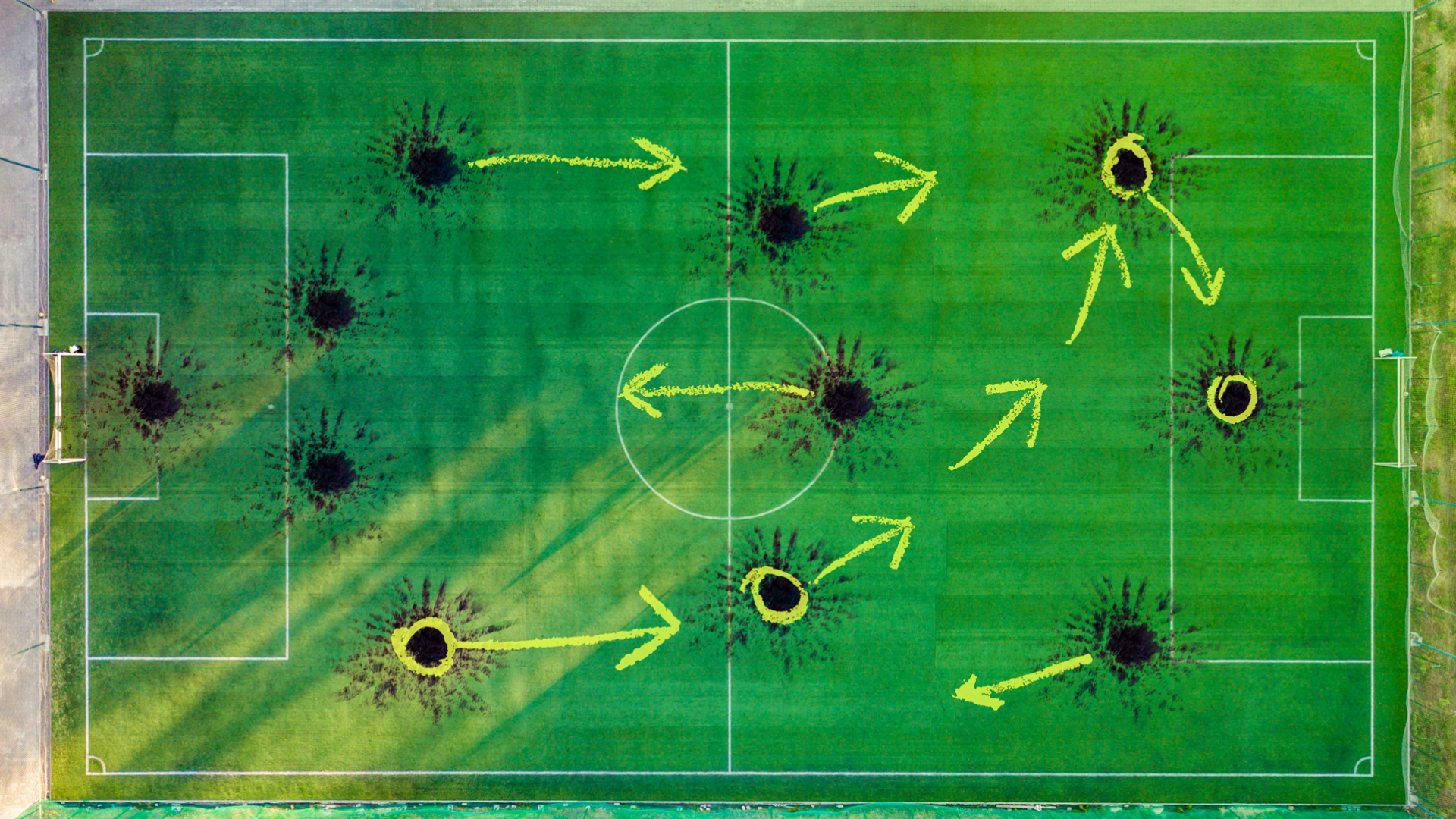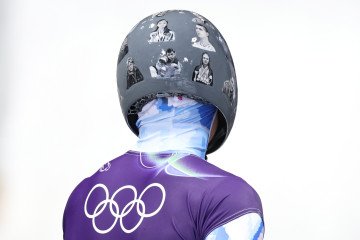- Category
- Life in Ukraine
The European—and Not Only—Football Teams That Are Still Buying Russian Players

International football signings make headlines due to the high dollar amount that clubs pay to retain the services of top talents across the world. Now, a signing in the hundreds of millions is common practice in a landscape saturated with mega deals. But what if that money goes straight into the foreign bank accounts of those linked to Putin?
FIFA and UEFA have imposed significant restrictions on Russian football clubs since February 2022; all Russian clubs and national teams have been suspended from participating in FIFA and UEFA competitions until further notice. This decision was made by the highest decision-making bodies of both organizations in response to Russia's invasion of Ukraine. Effectively isolating the country in the same way that broader international sanctions were intended to.
The governing bodies of world football, FIFA and UEFA, have sanctioned all Russian football clubs due to their connections to individuals and entities targeted by international sanctions. These clubs are linked to the Russian government and President Vladimir Putin, making business dealings with them problematic under the sanctions regime. Engaging with these clubs effectively means supporting a nation involved in Europe’s largest conflict since World War II. This blanket sanctioning aligns with the global strategy to apply economic pressure on Russia to cease its military actions.
Under the sanctions imposed on Russia, entities in Europe, the U.S., and allied nations are restricted from transferring sums over €100,000 to Russian entities without specific authorizations. Despite these stringent measures, there have been instances of major football clubs navigating these restrictions to complete multimillion-dollar transfer deals. These actions involve complex financial arrangements designed to bypass sanctions against Russian banking institutions, ensuring that Kremlin-linked clubs receive their due payments despite the ongoing conflict and sanctions.
Paris Saint-Germain acquires Goalkeeper Matvey Safonov from FC Krasnodar.
This week, Paris Saint-Germain, a top European football club, completed a 20 million euro transfer for the rights to 25-year-old Russian goalkeeper Matvey Safonov from FC Krasnodar. The transfer occurred 27 months into Russia’s invasion of Ukraine, highlighting the moral grey zone that football clubs can operate in when circumnavigating sanctions.
FC Krasnodar was established in 2008 by Sergey Galitsky, a Russian billionaire businessman who amassed his wealth in the retail sector through the ownership of "Magnit," one of Russia's largest supermarket chains. Initially, the sole owner, Galitsky later sold a majority stake in the club to Gazprombank, a major Russian banking and investment firm. Gazprombank has been linked to the war in Ukraine due to its connections to the Russian government and state-owned gas company Gazprom.
Yes, Gazprombank has been sanctioned. But neither Safonov nor Gazprombank are currently subject to the level of sanctions that would have obstructed the 20 million euro transfer. Despite Gazprombank's ties to the Russian government and state-owned companies like Gazprom, it has not been sanctioned by the European Union or other international bodies, which effectively allowed the transactions involving Gazprombank to be processed through the global banking system.
According to Mercato, Safonov will have some trouble joining his new club. He owes his wife, Anastasiya Kazachyok, 60 million Rubles in damages from divorce proceedings. Russian law prevents Safonov from leaving the country until the debt is paid.
PSV signs Guus Til from Spartak Moscow
In July 2022, PSV Eindhoven, one of the Netherlands’ premier football clubs, signed Guus Til, a 25-year-old Dutch national, from Spartak Moscow for a transfer fee of 3 million euros. Russia’s second-largest oil company, Lukoil, has a 100% ownership stake in the football club—they even own the Lukoil Arena, where the club plays its home matches.
Spartak Moscow is owned by Lukoil, whose profits directly support the Russian army, but it didn't stop PSV’s Financial Director Jaap van Baar from saying that his club "didn't do anything wrong."
According to a report by “Follow the Money,” Jaap was responsible for circumnavigating financial sanctions against Russia by splitting the transfer fee into two separate tranches. One payment was made to Spartak Moscow’s Austrian bank account, while the second was sent to the Dutch Football Association, holding the money in its bank account until sanctions are lifted.
Real Sociedad Signs Arsen Zakharyan from Dynamo Moscow
On August 19th, 2023, Real Sociedad announced its $14 million signing of Arsen Zakharyan from Dynamo Moscow. Dynamo Moscow is owned by the Dynamo Sports Society, an organization dating back to its founding in 1923. The Dynamo Sports Society is historically linked to Soviet law enforcement agencies, such as the NKVD and KGB, and was founded by Felix Dzerzhinsky, the head of the Soviet Union's secret police.
Today, the society manages various sports clubs, including Dynamo Moscow's football team, under the leadership of Anatoly Gulevsky, a two-star general in the FSB (Federal Security Service). Dynamo is also linked to VTB Bank, a sanctioned Kremlin-linked bank that once owned the club and transferred its ownership stake to the Dynamo Sports Society on February 24th, 2024.
According to the Spanish newspaper El Pais, Real Sociodad believes that it hasn’t broken any laws when transferring a large sum of money to an FSB-owned football club. It says, “We verified this thoroughly, and the ‘soccer player’ category was not included in the sanctions lists.”
Camilo “Leaves” Lyon for Grozny
In 2023, Camilo was a solid midfielder who played on loan in the Belgian second league, playing for RWD Molenbeek and was critical in their promotion. He, in turn, was looking for more opportunities as a stacked Lyon squad did not have the space for Camilo to develop on their roster.
According to the Dutch report Camilo had chosen himself to take his talents to the Caucuses and play for FC Grozny in Chechnya, Russia. The club which is owned by the Chechen government and is controlled by their leader Ramzan Kadyrov. Unsurprisingly the club and country are under international sanctions, Kadyrov’s army played a key role in committing war crimes inside of Ukraine and gained notoriety for their strange affection for TikTok.
Concerning the transfer, the report states that Lyon was very unhappy with the footballer’s choice in geography, and the sanctions prohibiting the transfer of funds. It was stated that no transfer sum was attached to the move but instead, a 20% sell-on fee for Camilo’s future transfers was agreed on.
Cross-referencing that information with football transfers a site dedicated to tracking the movement of footballers globally, it shows that Camilo was sold to FC Grozny for 800,000 Euros.
Malcolm Transfers from FC Zenit to Al Hilal
Saudi money is no joke, and their expansion of the Saudi Pro League saw multi-million dollar transfers of superstar talents like Ronaldo and Neymar Jr. So it would come as no surprise that the most expensive transfer sum to a Russian club would come from none other than the Saudis.
On July 23rd, 2023, Zenit St. Petersburg announced that Al Hilal paid 60 million euros for the rights to Malcom, a Brazilian forward who played a stint at FC Barcelona (they also received a 20% cut of the transfer fee).
Zenit St. Petersburg is owned by Gazprom, a state-owned Russian energy company. Gazprombank, a subsidiary of Gazprom, also holds a minority stake in the club. Much of Russia’s war machine is funded by the sale of its energy resources. The late Republican senator John McCain once called Russia a “Gas Station masquerading as a country.”
There are no details available about how the transfer went through. It can only be assumed that the Saudis and the Russians, who have a blossoming geopolitical and financial relationship, found the means to push the deal through. Russia and Saudi Arabia are significant oil exporters and work closely within the framework of the OPEC+ format.


-554f0711f15a880af68b2550a739eee4.jpg)


-6ead6a9dd508115a5d69759e48e3cad1.jpg)
-29a1a43aba23f9bb779a1ac8b98d2121.jpeg)
-7f50738271c122a9b5e663cb80703dd6.jpg)
